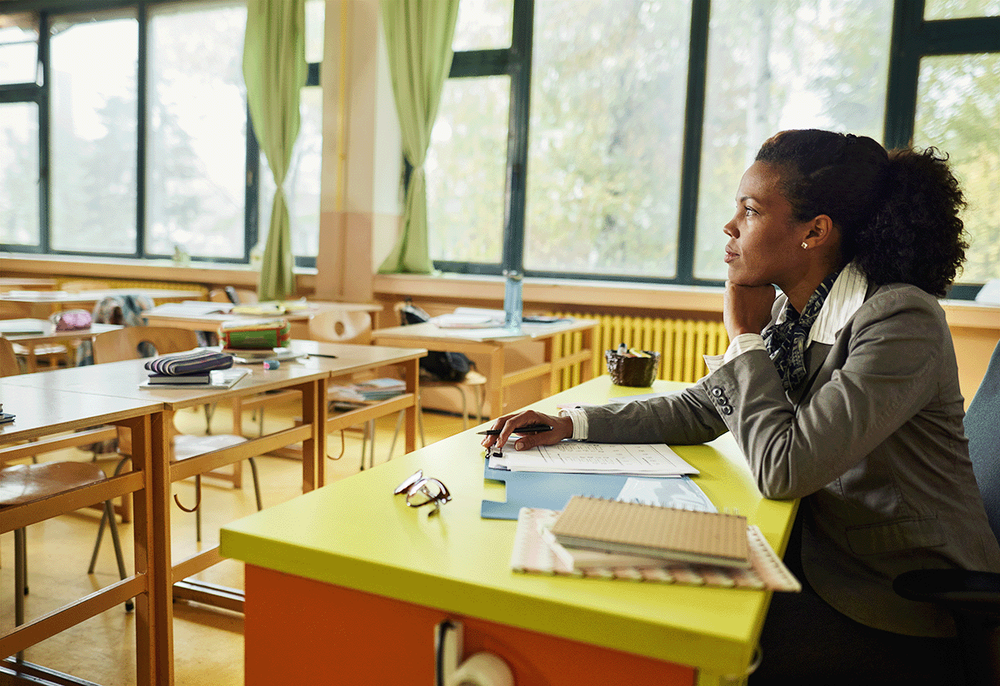Posted: November 20, 2023
Managing emotions and showing empathy are important life skills to develop and cultivate. Mindfulness can support social-emotional (SEL) skill development for educators by enhancing their ability to focus attention and become more self-aware and aware of others.

Teacher reflecting at their desk in empty classroom.
When adults practice mindfulness, being present in the moment, without judgment, and with the intention of curiosity and kindness, they can more successfully regulate their emotions, thoughts, and behaviors and more effectively manage stress. Practicing mindfulness also supports our ability to assess our emotions more accurately. It supports our ability to become more aware and present with both challenging and positive feelings.
"We can apply mindful awareness to deepening our reflection on our emotional patterns... Thus, when we reflect on a challenging situation, we can bring awareness not only to what happened, but how we felt about it, what we were thinking about it, and how these thoughts and feelings affected our behavior" (Jennings, 2015, p. 63).
Growing awareness of our thoughts, emotions, language, and behaviors helps us to build skills in understanding and managing our emotions. Educators who better understand their emotional reactions and feelings create opportunities to have more positive and supportive interactions and relationships with children and families.
An important first step in growing these skills is for educators to effectively understand and manage their emotions. When an educator develops this type of self-awareness, it enhances their ability to not only understand their own feelings but to also understand the feelings of others. It allows space for an educator to show empathy for themself and for the children and families they serve.
Consider this scenario
You scheduled a meeting with the family of a child in your 3-year-old class about a concern you have related to delayed language development. You’ve observed, assessed, and documented these concerns over time. When you briefly share this information with the family to schedule a meeting, they respond with little interest and seem annoyed. You want to collaborate with the family, learn about their perspective, and share your observations.
How can you use mindful SEL skills to support this joint conversation?
Reflect as you think about
- How am I feeling?
- How can I harness my self-awareness to understand the emotions this family might be experiencing?
- How can I respond to the situation with a calm and regulated approach?
- What can I do to support the family as we begin this conversation?
- How can I approach this conversation as a collaboration?
In this situation, reflection, self-awareness, and awareness of others is critical in having a collaborative conversation with the family in a sensitive and responsive way. Social-emotional learning skills and mindful practice provide a foundation for an educator to interact calmly, with curiosity, and with an open and flexible mindset. When an educator can think more intentionally and carefully about their own biases, thoughts, and feelings, it supports the ability to become aware of the perspectives and emotions of others.
Reference
Jennings, P. A. (2015). Mindfulness for Teachers: Simple Skills for Peace and Productivity in the Classroom (The Norton Series on the Social Neuroscience of Education). WW Norton & Company.

